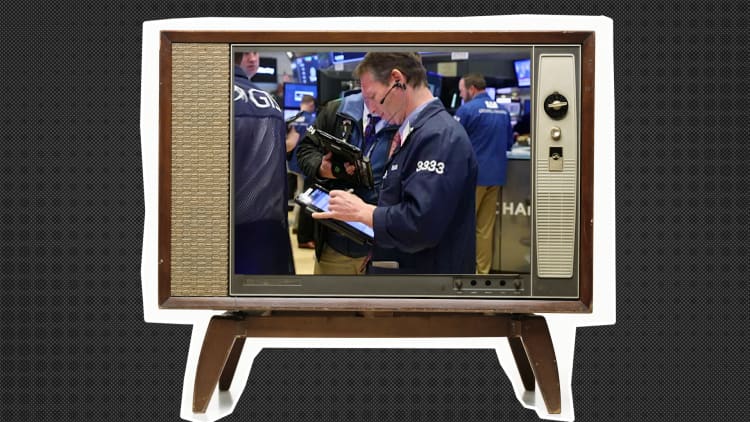Amid worries of a trade war and fears of the tech industry getting hit with regulation, the stock market kicked off April with its worst start to the second quarter since the Great Depression. The Dow Jones industrial average fell 458.92 points. Meanwhile the S&P 500 fell 2.2 percent and the Nasdaq composite fell nearly 2.7 percent. Both closed in correction territory.
That leaves many investors worried and wondering what to do.
During times of stress and uncertainty, Oracle of Omaha Warren Buffett recommends keeping a level head. In response to wild market fluctuations back in 2016, he told CNBC that buy-and-hold is still the best strategy.
"Don't watch the market closely," he advised those worried about their retirement savings at the time. "If they're trying to buy and sell stocks, and worry when they go down a little bit … and think they should maybe sell them when they go up, they're not going to have very good results."
Most analysts still consider this drop to be a normal correction, as opposed to a sign of an incipient bear market. Though losses are unsettling after 2017, the first year in history where the S&P 500 showed gains every month, Nick Holeman, a CFP at Betterment, agrees that you shouldn't panic.
He tells CNBC Make It that he recommends investors "re-watch their favorite Super Bowl commercials, get ice cream with their kids and say hi to a friend they haven't spoken with in a while."
"As long as you are invested appropriately for your goals, stay away from your investment portfolio," he says.
As long as you are invested appropriately for your goals, stay away from your investment portfolio.Nick HolemanCFP at Betterment
That said, if the drop does turn out to be more prolonged than expected, things get more complicated. Holeman recommends that investors be sure to re-balance their portfolios. "When market volatility picks up, your portfolio can get unbalanced, which means you may be taking more or less risk than you think."
He also advises tax loss harvesting, "a time-tested strategy that uses market losses to help save taxes." It entails selling an investment in order to generate a loss that will ultimately maximize your tax-return.
Amid small market fluctuations, however, and even a normal bull-market correction, the consensus is that you should not make any rash decisions.
Like this story? Like CNBC Make It on Facebook!
Don't miss: An 18-year-old won the lottery on her first try—and she's doing something unusual with her prize




